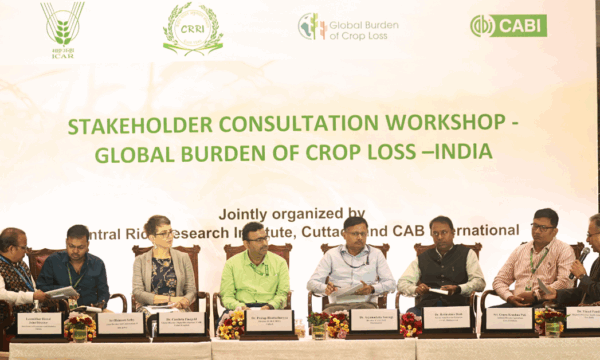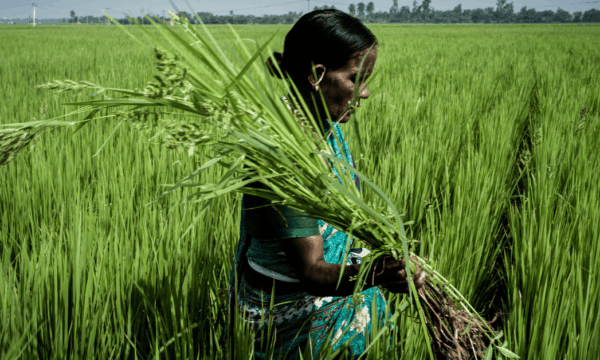This article was originally published by the International Rice Research Institute (IRRI)
To promote the use of biocontrol agents and biopesticides and mainstream Integrated Pest Management in the rice-based ecosystem in Odisha, the International Rice Research Institute (IRRI) partnered with CAB International (CABI) and Odisha University of Agriculture and Technology (OUAT) to organize a workshop and field demonstration on “Mass Production and Application of Biological Control Agents and Biopesticides” from 23rd -27th September. Biocontrol agents help prevent pest resistance, support sustainable agriculture, and are essential for organic farming. Additionally, they can reduce the long-term costs on insect-pest management.

This activity is under the World Bank-aided project “Odisha Integrated Irrigation Project for Climate Resilient Agriculture” and is managed by the Department of Water Resources and Department of Agriculture and Farmers’ Welfare, Government of Odisha. The project aims to intensify and diversify agricultural production and enhance climate resilience in selected districts of Odisha This is planned to be achieved by a) adopting high yielding climate-ready varieties of different crops in tank command and influence areas, b) promoting rice varieties and cropping systems for tank command and influence areas to manage rice fallows c) optimizing nutrient management in tank command areas through an integrated plant nutrient supply system, and d) strengthening the entrepreneurship capacity of farmer organizations for seed and service provision development.
Read the full article on the IRRI website
Related News & Blogs
Vietnam to advance biocontrol collaboration with experts from CABI and China to promote sustainable agriculture
CABI is supporting Vietnam to advance biocontrol by taking an important step towards greener, safer and more sustainable agriculture
18 December 2025





